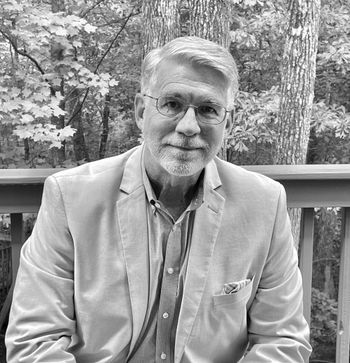PROF JENKINS: Plagiarism is just the tip of the iceberg
The greater problem is fraud, of various types and at all levels.
Rob Jenkins is a Higher Education Fellow with Campus Reform and a tenured associate professor of English at Georgia State University - Perimeter College. In a career spanning more than three decades at five different institutions, he has served as a head men’s basketball coach, an athletic director, a department chair, and an academic dean, as well as a faculty member.Jenkins’ opinions are his own and do not represent those of his employer.
As Campus Reform recently reported, Harvard University’s Chief Diversity and Inclusion Officer, Sherri A. Charleston, has been plausibly accused of 40 counts of plagiarism involving her doctoral dissertation and a peer-reviewed article she published with her husband, a professor at the University of Michigan.
Coming fresh on the heels of the Claudine Gay debacle, in which Harvard’s former president was driven from office by similar accusations, this latest scandal has given the “elite” university yet another black eye and scared away even more donors.
The Charleston case, however, is particular instructive in that it’s actually less about plagiarism than about academic fraud. The article she co-wrote with her husband—her only peer-reviewed publication—appears merely to recycle material from an earlier piece written solely by him while presenting it as new information.
If true, that constitutes clear fraud.
[RELATED: PSU punishes prof who duped academic journal with hoax ‘dog rape’ article]
And herein lies the truth of the matter: As widespread as plagiarism may be in the academy—and I have no doubt it is widespread indeed, and that many more revelations will be forthcoming—it is still just the tip of the academic malfeasance iceberg. The greater problem is fraud, of various types and at all levels.
For example, in the wake of the Gay scandal, few now remember that just five months earlier, Stanford University’s president, Marc Tessier-Lavigne, stepped down amid allegations that, as a professor, he had engaged in “research misconduct.”
An investigation by the university concluded that Tessier-Lavigne was not personally responsible for the fraudulent and manipulated data found in several scientific papers with his name on them, necessitating multiple revisions and retractions. Those “oversights” were blamed on junior members of Tessier-Lavigne’s research team.
Nevertheless, the papers did contain fraudulent and manipulated data, and for most of them Tessier-Lavigne was listed as primary author. So he had to go.
The problem, however, is much bigger than just a few high-profile cases. The sciences and social sciences have been mired in a “replication crisis” for nearly two decades. “Replicability,” which means an experiment can be reproduced with similar results, is considered a cornerstone of scientific enquiry.
The crisis was first uncovered by Stanford professor John Ioannidis in his landmark 2006 paper (updated in 2022), “Why Most Published Research Findings Are False.” Since then, various studies (like this one from 2015) have found that only about 40 per cent of papers in the social sciences can be replicated.
Nor do the “hard sciences” fare much better. In a 2016 survey of over 1500 researchers conducted by the prestigious journal Nature, 70 per cent said they had tried and failed to reproduce another scientist’s results.
That’s how bad the problem is in real academic disciplines. As you might imagine, it’s far worse in fake disciplines, such as those focused on victim-group “studies” or “critical theory.”
That point was illustrated hilariously a few years ago, when philosopher Peter Boghossian and mathematician-turned-conservative-firebrand James Lindsay wrote a series of quasi-academic papers—satire pieces, really—which they then submitted to supposedly “serious” journals.
Several actually made it through the “peer review” process and were selected for publication, including one on “canine rape culture and queer performativity” at dog parks, which was published in Gender, Place, and Culture: A Journal of Feminist Geography.
[RELATED: Prof: SpongeBob perpetuates ‘violent, racist’ acts against indigenous people]
After their hoax was exposed, Boghossian and Lindsay of course faced significant backlash. The dilemma for their critics, however, was that the papers were hardly any more absurd than many others routinely printed in such journals, nor was their “data” significantly less valid.
In other words, bogus “research” is so commonplace in academia these days that intentionally fabricated papers are virtually indistinguishable from those that are ostensibly legitimate.
Perhaps it’s small wonder, then, that someone whose only peer-reviewed article was based heavily on a previously-published work, mostly without attribution, representing old data as new findings, rose to a high-ranking (and high-paying) administrative position at one of the country’s most “prestigious” institutions.
That she might not be there much longer is beside the point. She got caught. But how many more Sherri Charlestons inhabit our nation’s institutions of higher learning, at all levels—and will probably never suffer any consequences?
Editorials and op-eds reflect the opinion of the authors and not necessarily that of Campus Reform or the Leadership Institute.

